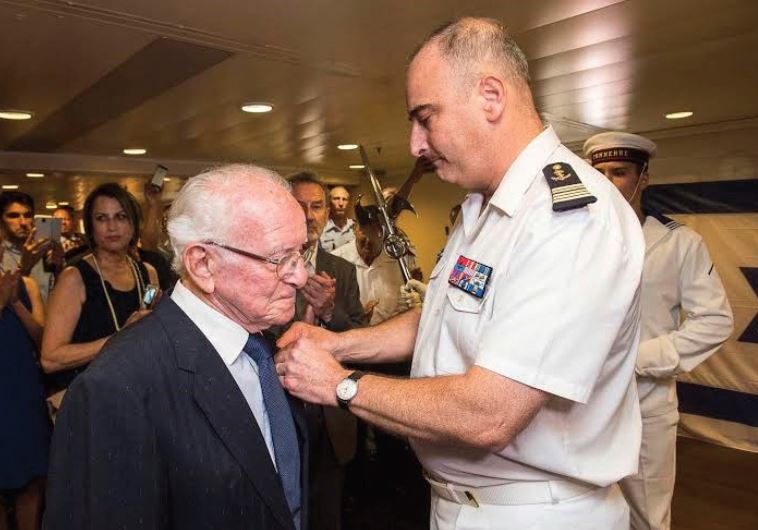Grapevine: The degree of what is offensive
During Barkat’s campaign to run for a second mayoral term, his parlor meetings included Q&A sessions with English-speaking residents of the capital.
 DR. RENE KARAT receives the French Legion of Honor from Captain Laurent Sudrat in Haifa.
DR. RENE KARAT receives the French Legion of Honor from Captain Laurent Sudrat in Haifa.